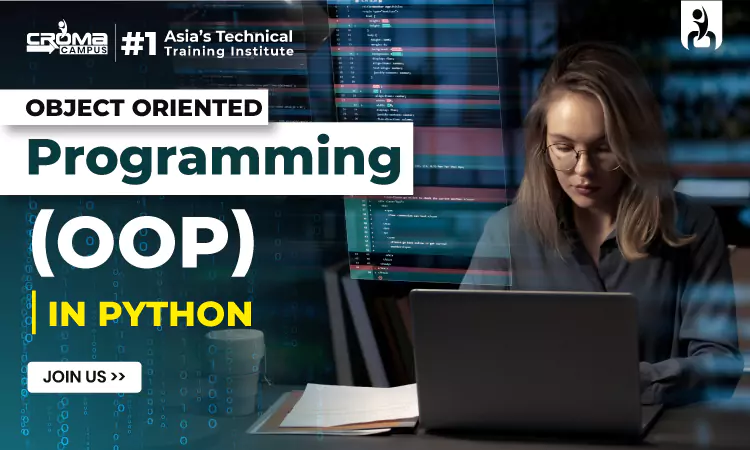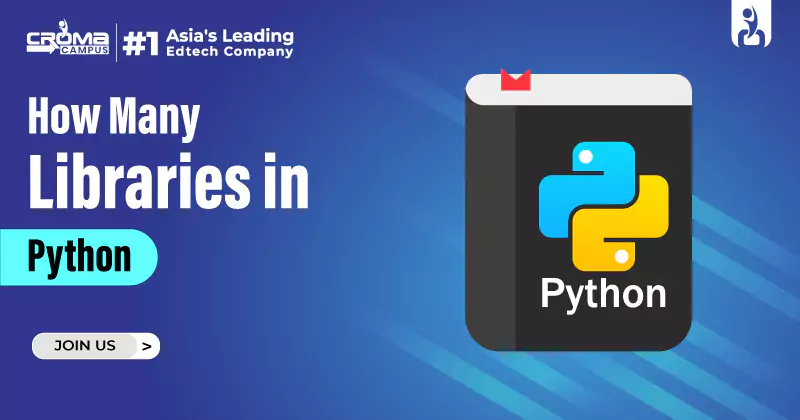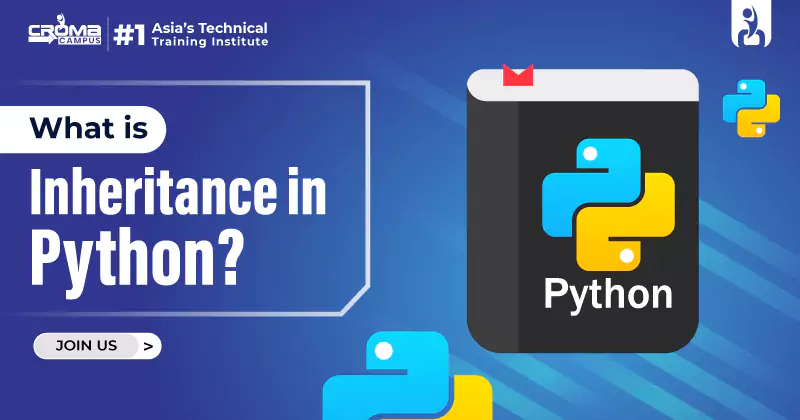Understanding Object Oriented Programming (OOP) In Python
4.9 out of 5 based on 4754 votesLast updated on 12th Aug 2024 7.4K Views
- Bookmark

Learn the fundamentals of Object-Oriented Programming (OOP) in Python, covering classes, objects, inheritance, and encapsulation to write clean, reusable code.

Object Oriented Programming (OOP) is
a programming paradigm that uses objects and classes to organize code in a way
that is intuitive and manageable. Python, being a versatile and powerful
programming language, supports OOP, making it easier to write clean, reusable,
and efficient code.
If you're looking to enhance your
programming skills, enrolling in a Python
Programming Course can be a great step.
What is Object Oriented Programming?
OOP is a method of structuring a
program by bundling related properties and behaviours into individual objects.
This paradigm revolves around four main principles:
- Encapsulation: This principle refers to the
bundling of data (attributes) and methods (functions) that operate on the
data into a single unit called a class. Encapsulation helps in hiding the
internal state of an object from the outside world, making the code more
modular and secure.
- Abstraction: Abstraction involves hiding the complex
implementation details of a system and exposing only the necessary parts.
It helps in reducing complexity and allows the programmer to focus on the
interaction with the object.
- Inheritance: This principle allows a new class to inherit
attributes and methods from an existing class. Inheritance promotes code
reusability and establishes a relationship between different classes.
- Polymorphism: Polymorphism enables objects
to be treated as instances of their parent class rather than their actual
class. It allows for method overriding and method overloading, providing
flexibility in code execution.
Why Learn OOP in Python?
Understanding OOP in Python is
essential for several reasons:
- Code Organization: OOP helps in organizing code
into manageable sections, making it easier to understand and maintain.
- Reusability: With inheritance and polymorphism, you can
reuse existing code, reducing redundancy.
- Scalability: OOP makes it easier to scale programs by adding
new classes and objects without affecting existing code.
- Real-World Modelling: OOP allows you to model
real-world entities, making it intuitive to design complex systems.
Implementing OOP in Python
Python makes implementing OOP concepts straightforward with its syntax and dynamic typing. Here’s a simple example to illustrate OOP in Python:
In this example:
- We define a base class Animal with an abstract method speak.
- We create two derived classes Dog and Cat, each implementing the
speak method.
- We create instances of Dog and Cat and call their speak methods,
demonstrating polymorphism.
What a Python Course Covers?
A comprehensive Python Course in Pune covers various topics to ensure you master Python and OOP concepts:
- Introduction to Python: Basic syntax, data types, and control structures.
- Functions and Modules: Creating reusable code blocks.
- OOP Concepts: Classes, objects, inheritance, polymorphism, encapsulation, and abstraction.
- Advanced Python: File handling, exception handling, and working with libraries.
- Web Development: Using frameworks like Django and Flask.
- Data Analysis: Introduction to libraries like Pandas and NumPy.
- Project Work: Real-world projects to apply your skills.
How Courses Help Master OOP Concepts?
Courses are structured to build a
solid foundation in Python and progressively introduce OOP concepts. By
engaging in hands-on projects and assignments, you get practical experience,
making it easier to understand and implement OOP principles effectively.
Why Choose Croma Campus?
- Croma Campus stands out for several reasons:
- Experienced Instructors: Learn from industry experts with years of experience.
- Comprehensive Curriculum: Covers all aspects of Python programming and OOP concepts.
- Hands-On Training: Practical assignments and projects to solidify your learning.
- Flexible Learning: Online and offline classes to suit your schedule.
- Certification: Recognized certification that adds value to your resume.
- Placement Assistance: Support in finding job opportunities after course completion.
To master OOP in Python, consider enrolling in a Python Course in Hyderabad. These courses provide comprehensive training on Python's features, OOP principles, and practical applications. By the end of the course, you'll have a solid understanding of Python and the skills to apply OOP in real-world projects.
You May Also Read:
Python Programming for Beginners
Python Interview Questions and Answers
Data Science Interview Questions and Answers
Conclusion
Object Oriented Programming in Python
is a powerful way to structure your code, making it more efficient and easier
to manage. By mastering OOP through a Python Programming Course or a Python
Certification Course, you can enhance your coding skills and open up new
opportunities in the tech industry. Whether you're a beginner or an experienced
programmer, learning OOP in Python is a valuable investment in your career.
For more information and to enroll in
courses, explore Croma Campus, a leading IT training company offering a variety
of Python courses tailored to your needs.
Subscribe For Free Demo
Free Demo for Corporate & Online Trainings.
Your email address will not be published. Required fields are marked *






















 Master in Cloud Computing Training
Master in Cloud Computing Training